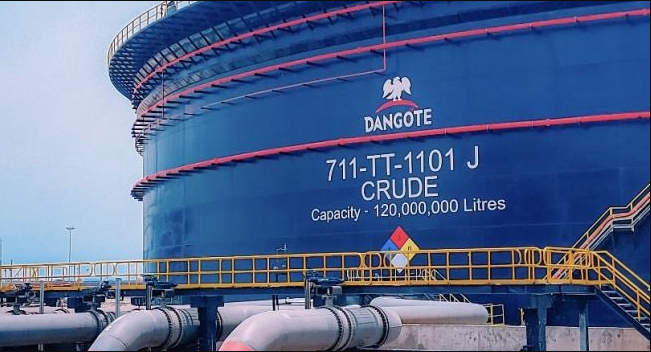Ghana is set to shift its fuel import strategy by sourcing petroleum products from Nigeria’s Dangote Petroleum Refinery once the facility reaches full capacity.
The move could significantly reduce the country’s reliance on European imports, which currently cost about $400 million each month.
Chairman of Ghana’s National Petroleum Authority (NPA), Mustapha Abdul-Hamid, announced this at the OTL Africa Downstream Oil Conference in Lagos on Monday, expressing optimism that the transition could bring down fuel prices in Ghana.
According to him, the decision was strategic, given that the Dangote Refinery, located in Lekki, Lagos, is expected to operate at a capacity of 650,000 barrels per day (bpd), far more than Nigeria’s domestic consumption.
“If the refinery reaches 650,000 bpd capacity, all that volume cannot be consumed by Nigeria alone. So instead of importing from Rotterdam as we do now, it will be much easier for us to import from Nigeria, and I believe that will bring down our prices,” Abdul-Hamid said.
The Dangote Refinery, a $20 billion project built by Nigerian billionaire businessman Aliko, Dangote, began releasing Premium Motor Spirit (PMS), also known as petrol, into the Nigerian market in mid-September 2024. However, due to Nigeria’s deregulated downstream oil sector, local marketers have continued importing large quantities of PMS despite the refinery’s output.
Abdul-Hamid highlighted that importing fuel from Nigeria could also lower the cost of goods and services in Ghana by reducing freight costs. He further noted that the long-term economic integration of African nations, including the adoption of a common currency, would lessen reliance on the US dollar and further stabilize prices across the region.
Ghana’s demand for fuel has surged alongside its economic growth, which reached 6.9 percent year-on-year in the second quarter of 2024, largely driven by an expansion in the extractive sector. The full operation of the Dangote Refinery, projected for early 2025, is seen as a key opportunity to support Ghana’s growing energy needs.





